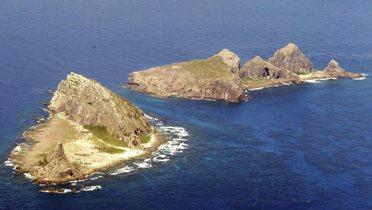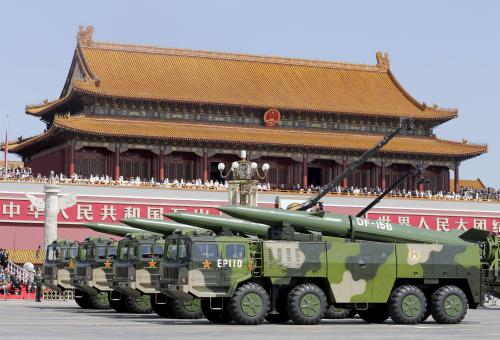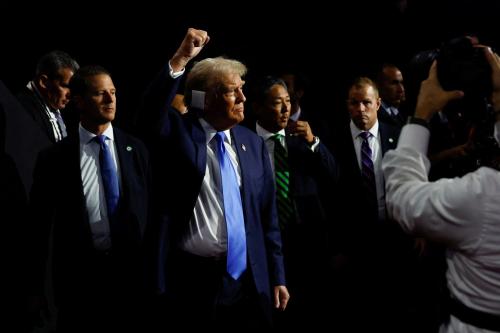The recent tension between China and Japan precipitated on September 7, when Japan detained a Chinese fishing boat captain for ramming a Coast Guard ship. While that specific incident led to a severe diplomatic conflict that lasted through September, disagreements between Japan and China (and Taiwan) over territorial and economic rights in the region underlie the dispute and will continue to trigger tension.
Following a very strong reaction from the Chinese government, including halting tourist exchanges, canceling a planned high-level summit, and possibly withholding the sale of rare earth minerals (the Chinese side disputes this characterization), Japan was not able to take any effective countermeasures and eventually felt compelled to release the fisherman before bringing formal charges against him. With any country, a territorial dispute and challenges to sovereignty over its people are not matters that can be taken lightly. There is no question that China had to take a tough stance on Japan’s seizure of Chinese boats and nationals which, because the seizure took place in internationals water where the maritime flag state is to be respected, are subject to return to the country under which the ship is flagged.
A short-term victory for China?
Usually in international disputes, when one country takes a tough stance, its opponent is likely to do the same, especially when it comes to the security of its land and nationals. However, in this recent case, when the Chinese government took a strong stance the Japanese government failed to display a corresponding strong step, such as indicting the captain, to enforce its own jurisdiction. Also, though Japan requested high-level negotiations on the issue, China felt secure enough to refuse.
In this instance, therefore, the tough stance taken by China was mostly successful in that the immediate issue at hand was solved to China’s satisfaction. But there are some interpretations by which Japan gained, or at least prevented further damage, even through this apparent diplomatic loss. For example, this incident can be interpreted as a result of Japan exercising its own domestic legal process, rather than as a surrender to Chinese pressure. Before the recent collision, there was no record that the Japanese Coast Guard had seized a Chinese vessel and handled it pursuant to its own legal system. Through this whole incident, however, Japan treated Chinese ships and crewmen by its law and, in so doing, demonstrated to the world that Japanese sovereignty and legal jurisdiction operated functionally around the Senkaku Islands. Setting the captain free without charge is a legal action, meaning that Japan exercised its own jurisdictional power and in legal terms Japan will be able to claim that its sovereign jurisdiction over the islands is now fait accompli, which is one of most important factors if the International Court of Justice should consider the issue in the future. Japan successfully set an important precedent.
Long-term damage?
Other long term trends may go against China, despite its superficial victory. On other issues—overall relations with Japan, territorial disputes in the South China Sea, a dispute over currency exchange rates with the United States, business and commerce practices, and even with the Norwegian Nobel Committee which awarded the Nobel Peace Prize to a Chinese dissident—it is questionable whether China’s recent tough tone and actions will be beneficial to China. Many countries worldwide want to cooperate with China. Member countries of the Shanghai Cooperation Organization are on good terms with China, and Chinese relations with Russia in particular are getting better. Yet Chinese relations with the ASEAN countries and Japan and South Korea—i.e., its East Asian neighbors—and relations with the U.S. are not so smooth.
First, the fishing boat incident led directly to public and private affirmations of U.S. military support for Japan, through the U.S.-Japan Treaty of Mutual Cooperation and Security. President Obama himself said on September 27 that the U.S.-Japan alliance is “one of the cornerstones of peace and security throughout the world.” Defense Secretary Robert Gates, when asked on September 23 whether the U.S. security umbrella extends to the Senkaku Islands, confirmed that the United States would “fulfill our alliance responsibilities.” The Japanese government revealed that Secretary of State Hillary Clinton told her Japanese counterpart that the islands would fall under the U.S.-Japan treaty, even though the American side confirmed only that Secretary Clinton had encouraged dialogue and expressed hope that the issue would be resolved soon.
Even without this overt support from Washington, the new Japanese cabinet led by Prime Minister Naoto Kan will adopt a tougher stance toward China for two reasons. First, unsurprisingly, Japanese public sentiment was terribly negative on the release of the captain, so the new Japanese leadership will demonstrate toughness in any similar case. More significantly, they will recall the experiences of two recent cabinets. Kan’s immediate predecessor, Yukio Hatoyama, tested a new approach—seeking to assert his will in the U.S.-Japan alliance, and working to build closer relations with China—but resigned quickly from office. On the other hand, the more hawkish Junichiro Koizumi inclined one-sidedly toward the U.S. but sacrificed his relationship with China and stayed in office more than five years. Prime Minister Kan and Foreign Minister Seiji Maehara will be inclined to follow the path that former LDP Prime Minister Koizumi took, rather than the option taken by Hatoyama, Prime Minister Kan’s only DPJ predecessor. Domestic politics aside, the perception of a potential threat from China may be stronger in Japan now than it has been in the past.
On another front, last July at the ASEAN Regional Forum, when contradictory claims over the South China Sea and the Spratly Islands surfaced, the eight stakeholder countries stood behind the U.S. and not China, and pressed China for a reasonable solution. In late September, at the height of the China-Japan tension, President Obama had a meeting and lunch with leaders of the ten ASEAN countries, only the second meeting by the U.S. president with all the leaders of ASEAN and the first ever in the U.S. They agreed to speak out about the importance of the peaceful resolution of disputes, freedom of navigation, and respect for international law including maritime laws, with specific reference to the South China Sea. This is the development that China has not wanted for a long time.
Under these circumstances, it’s not helpful to Chinese national interests to take a nationalist approach or pursue strong-arm diplomacy reliant upon hard power. Throughout the history of international politics, when a new strong contender comes along and starts to affect status quo, it is natural that other countries start to evaluate whether the new rising power is a spoiler, facilitator, cooperator, or benefactor of their own interests and the established world order. Furthermore, the other countries react sensitively to any losses the newcomer inflicts and they tend to care less about the gains from it. Neighboring countries are less grateful for any help that China may provide to them, and are more suspicious that China might have malevolent intentions. In such situations, and under such biases, China should emphasize dialogue and collaboration—paths that are based on a soft power approach—as opposed to taking hard power foreign policy and diplomatic lines.
Will U.S. involvement exacerbate China’s approach to its neighbors?
It is certain that both the United States and China hope for Southeast Asia to be stable and remain peaceful. While the Diaoyu/Senkaku issue is potentially related to the U.S.-Japan Security Treaty, and the U.S. says that freedom of navigation in the South China Sea is closely related to U.S. interests, in actuality there is very little possibility that the U.S. and China will come to direct confrontation on this territorial issue. Even though the U.S. included the Diaoyu/Senkaku islands under the alliance umbrella if hostilities were to break out between China and Japan, President Obama took no position on sovereignty over the islands. According to Jeffrey Bader, senior director for East Asia at the National Security Council in the White House, the Diaoyu Islands did not come up during President Obama’s meeting with Chinese Premier Wen Jiabao in New York on September 23, though Bader said that the U.S. hopes that the issue will be handled through diplomatic discussions.
Every issue that China faces in international relations is in one way or another intertwined with U.S. interests. The U.S. and China are so large that they affect all parts of the world. But just because this is so, it is only a general rule. Suspecting the U.S. of involving itself in every incident and always being suspicious of the U.S. goes against the facts and logic. The perception that the U.S. will always be behind an issue and therefore that China must have no choice but to face the U.S. directly is not a solid argument and is not advantageous to China’s interests. In fact, Premier Wen Jiabao and President Obama agreed in their September 23 summit meeting that the common interests of the U.S. and China outweigh the differences, and the differences will be able to be resolved through dialogue and matured mutual understanding.
To give advice out of the most sincere concern, as a third party, I would emphasize that at the current stage it is best for China to respond to its economic clash with the U.S. and territorial disputes with Japan and others as two discrete and separate issues. At the same time, China must engage in more dialogue and contact with Southeast Asian nations and other neighboring countries, and try to convey the impression that China genuinely does not wish to hurt the interests of its neighboring countries.



